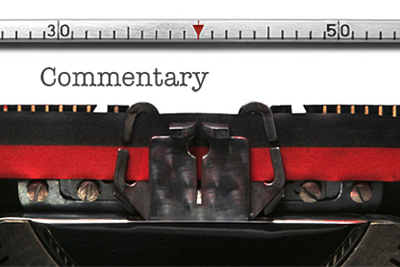Commentary is a regular UMSL Daily column written by members of the UMSL community.
I was recently asked how to convince people that character education actually works. The cynicism, skepticism, and conservatism out there often astound me. Amy Johnston, the award-winning principal of 2008 National School of Character Francis Howell Middle School in St. Charles, M0., expresses the same frustration.
As the character education pioneer in her district, she often presents a comparison of her school’s academic and character data as compared with the other four middle schools in her district. Even early in her character education journey, she started to see her school pull away from the other four in both areas.
When other educators noticed the results she was getting, they began to ask for her secrets.
She answered, “Character education,” to which they typically replied “No. Really. What did it?”
So she would explain how she used character education to rethink and reform her school and would describe the specific initiatives she enacted, like looped, multi-aged “homerooms” and a collaboratively-generated set of four core values with a corresponding rubric crafted in part by students. And they would shake their heads and walk away seemingly disappointed.
So she laments, “They see the data, I tell them what we did, and they don’t believe it. What more can I do?”
Amy’s frustration mirrors the frustration of many educators who believe in character education and base their beliefs on hard data. I hear all too often that “there is no research on character education.” Well that is patently inaccurate.
In 2005, in collaboration with the Character Education Partnership and the support of the John Templeton Foundation, Mindy Bier and I published “What Works in Character Education.” It was a result of our attempt to find the holes in the literature; i.e., to generate an agenda for needed future research by mapping what little was known and then prescribing new research.
We were stunned by how much research existed. We found over 200 recent studies. We reviewed them, especially 69 scientifically rigorous studies showing the effectiveness of quite a wide range of character education initiatives, and drew conclusions from them about effective practice. While the newest studies in that report are now eight years old, it still has legs and is cited frequently (I recently received a Google alert that it had just been cited in Malaysia.)
And WWCE is not the only such source of evidence. The U.S. Department of Education included character education in its What Works Clearinghouse and found many effective programs. In addition, other related areas have similar sets of convincing data. The Collaborative for Academic, Social and Emotional Learning published both a program review of 80 social-emotional learning programs and more recent meta-analysis of 213 such programs.
In parallel there are reviews of service learning, positive psychology, and various prevention curricula, many of which are also included in the WWCE, WWC, and CASEL reviews. Separately or together, they point to the same conclusions:
• Character education can and does work
• The effects are broad ranging
• What you do and how well you do it matter
One of the most persistent push-backs we get is the assumption that time on character education (or social-emotional learning etc.) is time away from academics. In other words, many educators seem to assume that this is a zero-sum game; more character education means less learning. This is about inaccurate as could be. I will make two points about this:
• Good character education is good education. The basic tenets of effective character education, as delineated in the CEP Eleven Principles of Effective Character Education, but also throughout the effective practices literature in education, focuses on school climate, relationships, and a purpose- and value-driven school. They are the same principles advocated in effective schools and in character education.
In a recent study of nations that are particularly successful in academic education outcomes (and the U.S. is not one of them), it was concluded that, “Although all these countries are concerned about developing the unprecedented levels of cognitive and noncognitive skills required by the global economy, they are no less concerned about social cohesion, fairness, decency, tolerance, personal fulfillment and transmission of values that they feel define them as a nation. In many cases, these discussions of national goals have laid the base for profound changes in the design of national education systems” (“Surpassing Shanghai: An Agenda for American Education Built on the World’s Leading Systems,” edited by Marc Tucker, 2011, p. 173).
Clearly the US has much to learn about education from this, for it is concluded that the research on these high success countries includes no evidence that any of them have gotten there “by implementing any of the major agenda items that dominate the education reform agenda in the United States, with the exception of the Common Core State Standards” (Tucker, p. 209).
• Research shows that character education promotes academic achievement. This makes sense because of the overlap in methods with effective schools and because common sense tells us that when students like school, feel a valued member of the school community, and feel that they are co-owners and co-authors of their educational experiences, they are more motivated and self-managed, and hence perform better, both academically and behaviorally. In a study of 120 California elementary schools, Jack Benninga and I and our colleagues found a strong association between character education and state test scores. CASEL’s meta-analysis shows the same finding, as have many other studies and reviews. And case studies abound. One merely needs to look at the CEP website’s thumbnails of National Schools of Character to see example after example.
Perhaps no case is more compelling than that of Ridgewood Middle School in Arnold, Mo., which Charles Haynes and I reported in USA Today on Feb. 20, 2007. Simply by transforming the horribly negative school culture of a failing school by using character education principles, they moved from state test scores with only 30 percent success in communication arts and 7 percent success in mathematics in 2000 to 68 percent in communication arts and 71 percent in mathematics.
So can we make a case for the effectiveness of character education? I think I just did. And there is so much more evidence that I don’t have room to present here. Character education is good education as such it promotes healthy schools, the positive development of students, and academic excellence. And the data support it. If your doctor presented this kind of evidence of effectiveness of a treatment for you, you would not hesitate. Character education is what this doctor prescribes for our youth, our schools, our nation and our world.
Marvin Berkowitz is the co-director for the Center of Character and Citizenship and the Sanford N. McDonnell Endowed Professor of Character Education at UMSL. A version of this column originally appeared on the Character Education Partnership blog.















